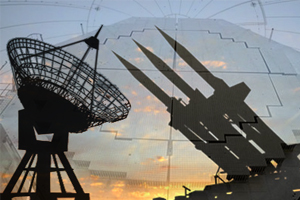The Institute of World Policy has held the presentation of the policy paper “Ukraine in NATO Missile Defence System: Pro et contraThe policy paper wаs prepared within the framework of the project “Ukraine in NATO Missile Defence System: Pro et Contra” implemented by the Institute of World Policy along with Centre for Army, Conversion and Disarmament Studies with the support of the NATO Liaison Office in Ukraine.
The study was presented by Alyona Getmanchuk, director of the Institute of World Policy, Serhiy Zhurets and Anton Miknenko, experts of the Centre for Army, Conversion and Disarmament Studies and Oksana Pyliavets, IWP’s analyst. Mr. Marcin Kozieł, Director NATO Liaison Office in Ukraine took part in the presentation.
The policy paper “Ukraine in NATO missile defence system: pro et contra” is based on exclusive comments taken from Ukrainian and foreign politicians, military-technical experts, and diplomats. Within the framework of the project (over July-September 2011) IWP experts interviewed and consulted a large number of the representatives of the Ukrainian governmental institutions: the Ministry of Foreign Affairs, the Ministry of Defence, the State Space Agency of Ukraine, the Verkhovna Rada, the National Institute for Strategic Studies under the President of Ukraine, and foreign diplomatic missions. Also the two focus-groups, in which the leading experts on missile defence issues from Ukraine and NATO member-states took part, were held. In September 2011 the videoconference Kyiv-Moscow was organized to encourage an opinion exchange between the Ukrainian and Russian security expert communities.
The participants of the presentation discussed the research results, emphasizing the following issues:
• Ukrainian politicians lack a broad consensus on the Ukraine’s possible engagement into NATO ballistic missile defence system. Political parties in Ukraine appeal to this issue as to the subject of geopolitical manipulations, sharing, however, the belief that the Ukraine’s “non-alignment policy” will not jeopardize its participation in the international missile defence systems.
• Ukraine’s participation in NATO BMDS is consistent with its national interest and the threat of the falling of the intercepted missile wreckage onto Ukraine’s territory, according to expert assessment, is minimal.
• Ukraine-NATO/USA cooperation in the development of NATO BMDS faces a period of mutual wait-it-out strategy: while Ukraine insists on being officially invited to cooperate on missile defence issue, NATO/USA waits for Ukraine to put forward the detailed proposals on its possible contribution into NATO BMDS. The developments in the NATO-Ukraine negotiation process can occur only after the accord between NATO and Russia is reached. Nevertheless, Ukraine may endeavor to use the consultations with the U.S. on missile defence as a lever in solving Russia-Ukraine bilateral Agenda.
• Ukraine should not appeal to radar sites in Mukachevo and Sevastopol as to possible contribution into NATO BMDS due to, firstly, the fact that they are outdated and inefficient, and secondly, the Russian modern radars in Armavir and Kaliningrad, which cover the bigger area and have much better technical capacity. Ukraine’s proposals may comprise the following: a) a direct technical participation of the Ukrainian enterprises in the creation of the missile defence elements; b) engagement into NATO BMDS of the new modern Ukrainian radar, which is currently being built and may be constructed according to NATO standards; c) deployment on the cruiser “Ukraine”, located in the Black Sea, the elements of the Euro-Atlantic BMDS; d) providing Ukraine’s territory for the deployment of the information exchange center of the NATO-Russia ballistic missile defence system.
{16}
Marcin Koziel, Director of the NATO Liaison Office in Ukraine
{1}
{12}
Alyona Getmanchuk, director of the Institute of World Policy
{5}
Marcin Koziel
{6}
Serhiy Zhurets, expert, Center for Army, Conversion and Disarmament Studies
{7}
Anton Mikhnenko, expert Center for Army, Conversion and Disarmament Studies
{8}
{3}
Viktor Kochukov and Alexandr Rumiantsev, Embassy of the Russian Federation to UKraine
{11}
Oksana Pyliavets, analyst of the Institute of World Policy
{14}
Maksym Kostenko, Council for National Security and Defence of Ukraine
{10}
{9}
Mikhailo Gonchar, manager of the energy programs, NOMOS Center
{2}
{13}
{15}
Photo by Natalia Sagalata




Comments theme
Comments themeComments themeComments themeComments themeComments themeComments themeComments themeComments themeComments themeComments themeComments themeComments themeComments themeComments themeComments themeComments themeComments themeComments themeComments themeComments.